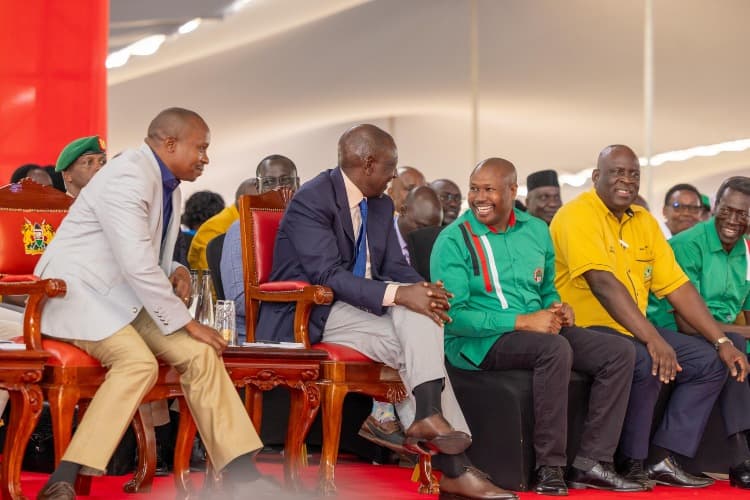We're loading the full news article for you. This includes the article content, images, author information, and related articles.
Homa Bay, Kenya – Former Kenya National Union of Teachers (KNUT) Secretary General Wilson Sossion has defended the recent State House meeting between President William Ruto and a delegation of teachers, emphasising its legitimacy and importance.

Homa Bay, Kenya — September 22, 2025, 11:30 EAT.
Former Kenya National Union of Teachers (KNUT) Secretary General Wilson Sossion has defended President William Ruto’s recent meeting with teachers at State House, stressing that the gathering was legitimate and funded through the standard State House budget line.
Sossion said on Monday that the September 2025 meeting between President Ruto and teacher representatives was neither irregular nor a diversion of funds from education or other ministries. Speaking on a local TV interview, Sossion stated that the event fell squarely within the president’s constitutional mandate and the State House operational budget.
“The president has a right to meet delegations in State House, and the budget for such events is provided for under the State House expenditure line. It was neither drawn from universities nor any other ministry,” Sossion explained.
His remarks follow public debate over the cost implications of high-profile delegations hosted at State House amid concerns about austerity and budget deficits.
The meeting: President Ruto hosted teacher leaders from across Kenya earlier this month to discuss education reforms, teacher welfare, and upcoming policy rollouts.
Criticism: Some commentators questioned whether hosting such events at State House was appropriate given economic pressures and competing demands for education funds.
Past practice: Previous administrations, including those of former Presidents Mwai Kibaki and Uhuru Kenyatta, regularly met professional groups at State House to discuss sectoral policies.
Budgetary provisions: The State House budget falls under the Office of the President as per the Executive Office of the President Act and is approved annually by Parliament.
Mandate: The Constitution of Kenya (2010) grants the president authority to convene stakeholders for policy consultations.
Accountability: Expenditure under this budget line is audited by the Office of the Auditor-General and reported to Parliament.
Wilson Sossion, Former KNUT SG: “State House diplomacy and consultation are part of governance. This was a legitimate meeting within the law and the budget.”
Teachers’ unions: Officials welcomed the talks, noting that dialogue with the president helps fast-track education reforms.
Critics: Some civil society voices argue that austerity measures should also apply to State House activities, calling for public disclosure of costs.
Budget 2024/25: State House operations were allocated KSh 8.2 billion, covering maintenance, events, and administrative costs.
Education sector: Teachers’ salaries and capitation account for over KSh 600 billion in the national budget, the largest single expenditure line.
Meetings: At least four delegations have met the president at State House since July 2025, including doctors, SMEs, and county governors.
Public perception: Continued high-profile meetings may attract criticism amid economic hardships.
Policy follow-through: Teachers expect tangible outcomes on welfare and reforms, not just symbolic engagement.
Budget scrutiny: The Auditor-General may face calls for greater transparency on State House event costs.
The exact cost of the teachers’ delegation meeting.
Whether the outcomes of the talks will be tabled in Parliament for follow-up.
If future delegations will involve budget disclosures for public confidence.
2025-09-10: Teachers’ delegation meets President Ruto at State House.
2025-09-15: Critics raise questions about funding for the event.
2025-09-22: Sossion defends meeting, citing budgetary provisions.
Any official statement from the State House Comptroller on event costs.
Follow-up policy actions by the Ministry of Education based on teacher proposals.
Debate in Parliament over State House budget transparency.
Keep the conversation in one place—threads here stay linked to the story and in the forums.
Sign in to start a discussion
Start a conversation about this story and keep it linked here.
Other hot threads
E-sports and Gaming Community in Kenya
Active 9 months ago
The Role of Technology in Modern Agriculture (AgriTech)
Active 9 months ago
Popular Recreational Activities Across Counties
Active 9 months ago
Investing in Youth Sports Development Programs
Active 9 months ago
Key figures and persons of interest featured in this article